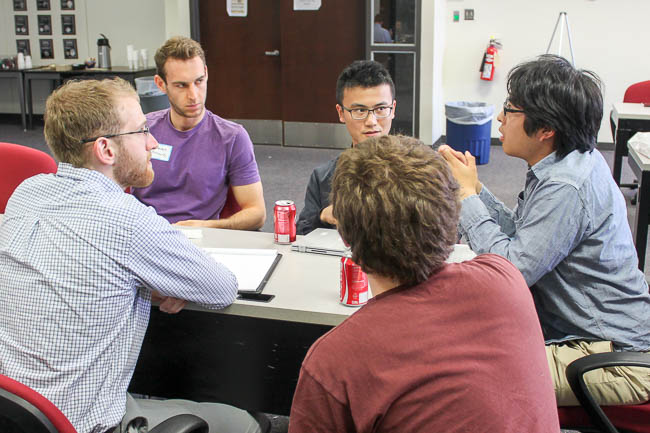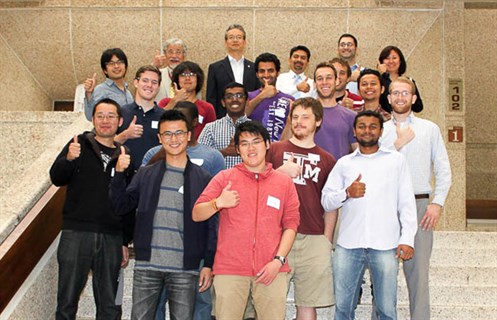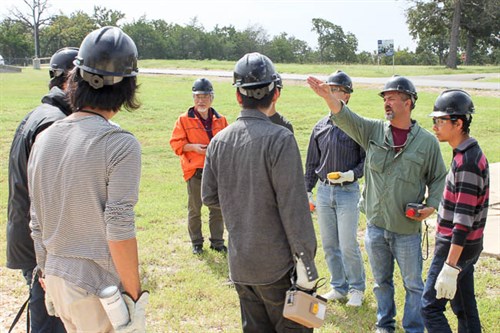
In September, NSSPI hosted a delegation of students and faculty from the Tokyo Institute of Technology (Tokyo Tech). The visit was the second academic exchange held at Texas A&M University between students at Texas A&M and the DOJO Nuclear Security Education Program at Tokyo Tech who are studying nuclear nonproliferation and security issues. Texas A&M students have previously attended two international symposia on nuclear safety, security, and safeguards conducted by Tokyo Tech in Japan.
The visit consisted of a series of student presentations on relevant research projects being conducted at both institutions. They also toured laboratory facilities at Texas A&M, including the Fuel Cycle and Materials Laboratory, the NSSPI Nuclear Security and Emergency Response Laboratory, the Department of Nuclear Engineering’s undergraduate teaching laboratories, and the Nuclear Science Center.

In a repeated activity from the last exchange, Tokyo Tech faculty and students participated in a radiological event exercise at the TEEX Disaster City facility under the guidance of NSSPI faculty member Dr. Craig Marianno. In this exercise, a 30 mille-curie size Cs-137 source was placed on Rubble Pile 1 (RP1), a pile of concrete and rebar containing a series of interior tunnels that is part of the Disaster City training compound. Using health physics instrumentation, the students had to map out the radiation field and determine the best entry point into the pile. The source was then placed inside the tunnel network of RP1. The students had to determine the safest tunnels to use in the pile to locate an area of low, but elevated, activity. Once in this area, students used Radio-isotopic Identifiers (RIIDS) to locate and identify a set of hidden sources. The exercise exhibited the actions a similarly-equipped emergency response team must achieve in order to safely address such a radiological event.

Tokyo Tech faculty discussed future research and academic activities with faculty and staff from NSSPI and faculty in the Department of Nuclear Engineering. They discussed the possibility for joint research projects and hosting future Tokyo Tech doctoral students at Texas A&M during their required 12 month-long internships.